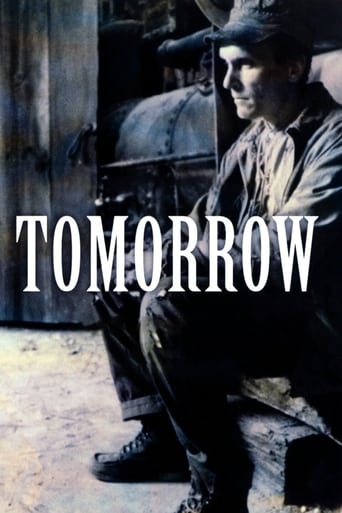dfwesley
Just a wonderful performance by Robert Duvall who dominates the entire film. He reminded me a lot of Boo Radley in TO KILL A MOCKINGBIRD and though Boo didn't speak, his mannerisms were similar. Duvall's interesting accent struck me as being as much hill-billy as southern.Several minor things troubled me a little about the movie. I did expect Jackson (Duvall) to try to recapture the boy, and I was somewhat surprised by his acceptance of the seizure. The ending also was unexpected.Olga Bellin also did not appear unusually ill for a dying woman in my view either, though she did a nice job with her role. Nonetheless, this was a fine movie and the acting was just superb.
jimbyrd-143-948957
I grew up in the 40's & 50's in the Ozarks in the proximity of people like this. The accent and elocution was right on for many of the dirt poor of the Ozarks and probably for Mississippi. I think shooting it in black and white added to its poignancy. The wardrobes were also right on. As a child riding the school bus, I remember fellow bus riders who had dirt floors in their shacks or dirt berm homes and then one rider whose father had an airplane close to their large house. It was almost a surreal experience, but it was real as this movie could have very well been real. Faulkner reminded me of O'Henry when it comes to a great short story.
runamokprods
Maybe I was over-hyped the first time, but this grew considerably in emotional power on 2nd viewing. Robert Duvall is remarkable in this sweet, simple adaptation of a William Faulkner story by play write Horton Foote. Granted the the female lead (in what's essentially a film of a 2 character play) isn't quite as strong. But the story of a dirt poor depression farmer taking in a pregnant woman is so devoid of Hollywood sentimentality that it's familiarity is overwhelmed by it's nuanced humanity. Very well shot in black and white on an tiny budget, it's certainly an intelligent, worthwhile movie, with many very touching moments.
dcalan
A lonely sawmill operator in the Mississippi Delta, Jackson Fentry, assumes the responsibility of caring for a fleeing pregnant woman. He falls in love with her and pleads with her several times to marry him. She finally relents after the baby is born. He then cares for the baby as his own child and they become very attached. When the child is three or four years old, his unsavory uncles and mother's family come and virtually kidnap him. Fentry is devastated but goes on with his life. Years later he refuses to vote guilty while a member of the jury in murder trial, and this story explains why.Faulkner is so tied to place that most attempts at filming his works fall short of conveying his intent. Tomorrow, however, really does look right, and only The Reivers has conveyed as much sense of place. Duvall's sensitive performance is played off perfectly by Olga Ballin's Sarah. She is whimsical without being fey and tragic without being lugubrious. Duvall's accent is a little trying at first, but once you listen for a few minutes, it resonates as the only possible way his character could express himself. The grinding poverty of the rural South from 1865 until after World War II comes across vividly. The tableaux depict the stark dignity of these sharecropper's lives as eloquently as Let us Now Praise Famous Men by James Agee and Walker Evans. Duvall has a right to be proud of this performance.



